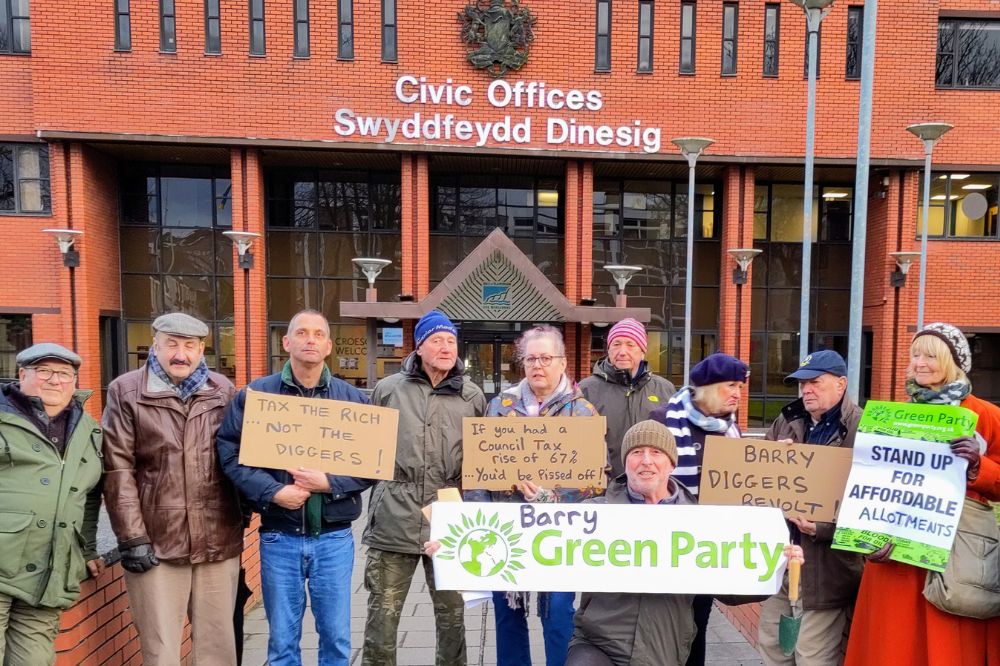Green Party members launch petition to stop ‘cruel’ allotment rent hike

A petition has been launched to stop the ‘cruel’ rent hike set to hit allotment owners in the Vale of Glamorgan.
Barry allotment holders and Green Party members angry at the proposed 67% rise in allotment rents are campaigning against the ‘cruel’ hike and urging people to put up their protest posters on their sheds, homes and work place.
The plans would see the average annual rent of an allotment in Barry and Rhoose increase from £60 a year to £110.
Campaigners believe the rise will mean many poorer allotment holders, who have often tended their plot for many years, will be forced to surrender their allotment due to the increased cost.
The council has offered allotment owners the option of halving the size of their plots to reduce the cost of renting them.
Support our Nation today
For the price of a cup of coffee a month you can help us create an independent, not-for-profit, national news service for the people of Wales, by the people of Wales.






